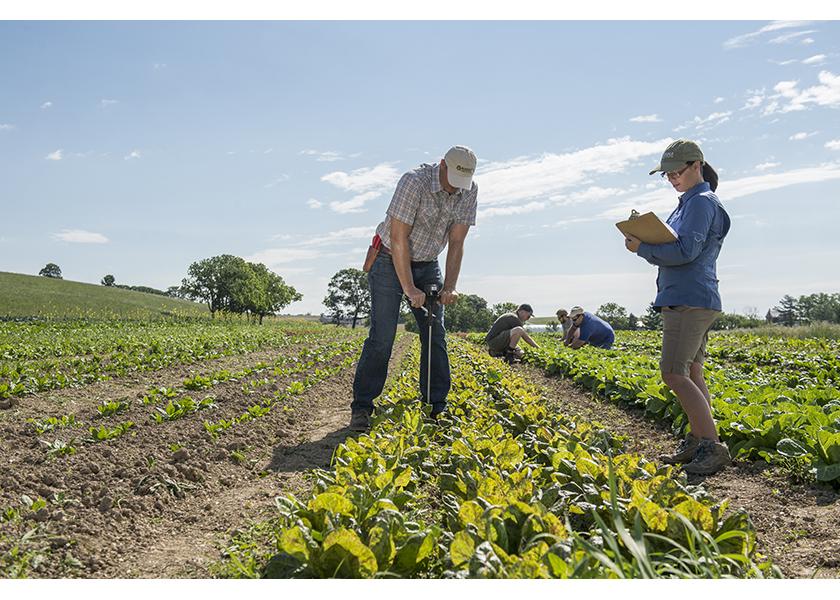In extreme weather, organic farming produces higher yields, report says

After 40 years of farm-level testing and analysis, Kutztown, Pa.-based Rodale Institute has shared results of its Farming System Trial, revealing its conclusion that organic agriculture management matches — or in some cases, outperforms — conventional outcomes.
“The Farming Systems Trial is one of our most significant research projects,” Rodale Institute CEO Jeff Moyer said in a news release. “In fact, with FST’s now 40 years of accumulated data and findings, it is fair to say that it is the most consequential study of organic agriculture anywhere.”
What’s more, the FST research by the organic advocacy nonprofit outlines how regenerative organic agriculture is an effective and resilient farming model in an era of extreme weather. This is a significant finding as farmers around the world contend with the devastating effects of crop losses stemming from droughts and floods, according to the release.
“Regenerative organic farming builds healthy soil through enhancing soil organic carbon,” Reza Afshar, Rodale Institute chief scientist, said in the release. “This allows the soil to absorb more rainfall during periods of flooding and retain moisture for longer periods during droughts.”
The FST research compares three core farming systems: a chemical input-based conventional system, a legume-based organic system and a manure-based organic system. Corn and soybean production is the focus of each system because 70% of U.S. acreage is devoted to growing grain.
In 2008, each core system was further divided to compare standard full-tillage and emerging reduced-tillage cultivation practices. At that time, genetically modified corn and soybeans were introduced to the FST’s conventional system to evaluate common practices.
Farm System Trial takeaways:
-
Organic systems produce yields of cash crops equal to conventional systems.
-
In extreme weather conditions, such as drought, the organic plots sustained their yields while the conventional plots declined.
-
Organic corn yielded 31% higher than conventional production in drought years.
-
Organic systems typically saw more diverse carbon inputs going into the soil, resulting in microbial biomass that was significantly higher than in conventional systems. Higher biomass led to higher soil organic matter over time.
-
Water infiltration was significantly faster under long-term organic management compared to conventional practices.
-
Soil health in the organic systems continued to increase over time, while the soil in the conventional systems remained essentially unchanged.







